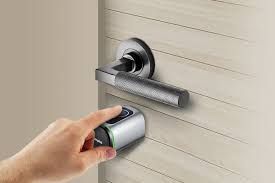Get a Certified Locksmith to Help You with These Expert Tips
September 24, 2023
When there is an emergency, you dial 911. But who do you call when you need a locksmith? There are numerous locksmiths available, but which one should you call? Finding a certified locksmith for your needs could be difficult. Read this article to get the best commercial locksmith for your needs.
32 Steps to a Successful Locksmith Service Appointment
- If you are painting, it is important to cover your locks before you begin. The locksmith needs to be called if you accidentally seal a lock. It could take some time to provide all locks with adequate protection, but it will prevent you from having to replace all your locks.
- Before you hire a locksmith, research his background. It’s important to hire someone that is working for you.
- You want to make sure that you hire is working for your best interest and not their own. Some locksmiths are scammers and will make their own copy of your keys.
- Always be prepared, regardless of whether you think you’ll ever be locked out or not. You want to have a reputable locksmith in mind before an emergency arises. Then, save the number in your mobile phone.
- Always get a receipt. While most of the locksmiths you encounter will be honest, there are those few that try to scam others.
- You should prepare yourself even if you need a locksmith is necessary. Research to find reputable professionals that you can trust. Put a locksmith’s contact number in your cell phone so it is always available to you.
- Using a locksmith during regular business hours saves you excess charges. After business hours, locksmith rates can vary greatly. For instance, you might pay 50 bucks for a service call during the day, but at night it will cost you double that.
- If you’re unsure about the reliability of a particular locksmith, you need to look them up on the website of the Better Business Bureau. This will give you the information you need for your peace of mind.
- Get references before you allow a locksmith in your home. Call all of the references before hiring them. You need the best quality of service but also a person you can really trust.
- Look for locksmiths who are active within their communities. It’s comforting to know that he/she is a professional who is on top of current trends. Additionally, the locksmith is less likely to be disreputable.
- Get references and recommendations before you allow a locksmith in your house. Once you get these references, follow through and call them.
- One of the first questions you ask a locksmith is how long their business. Make sure that they’ve been operating from this location the same location. A business that has been in an area for a number of years probably will be easy to work with.
- Find out how long a locksmith has been in business. In addition, be sure that they have worked from the same location consistently. Try to find a locksmith who has been in business for at least 5 years.
- If time allows, search the web on the locksmith whom you are planning to call. There are a great number of consumer sites where you can find honest reviews.
- There are a number of reliable websites that can help you find a locksmith. Make sure review website itself isn’t actually associated with a locksmith. You should also check to see if the locksmith you are considering has a locksmith.
- Verify the credentials of a locksmith. Cross-reference the address on the listing that you found with the phone number that is given to you. With easy online access, you can double check anyone you want to hire.
- When you’re looking for a locksmith, the Internet can be a great resource. A lot of people love to write about their experiences online.
- Don’t hire the first locksmith you just considered one option. You should be calling at least three or more locksmiths before deciding. This will allow you to figure out what kinds of reasonable rates.
- Try looking up the locksmith you plan to hire online. Don’t be scared to get this done because it will help you to know that you’re being secure. If something seems fishy, go with another locksmith. Most areas have a number of different locksmiths.
- If a locksmith says they charge for showing up, even before doing the job, steer away from them. This is not a fee that you want to pay.
- Ask your locksmith for references from previous customers. Many businesses are happy to provide references, so try calling them.
- Ask about additional costs when quoting locksmiths. Is tax included? Can you get any discounts, like for teachers or seniors? Do they charge extra for late night calls or those outside of a certain radius? Figure out the total, and then agree.
- Locksmiths are usually much more expensive when you call after normal business hours. There are companies who make the most of this and charge premium rates.
- The net is a great resource when you are in the market for finding a locksmith. A lot of people love to write about their experience with. You can find both positive and bad reviews. The good thing is that such reviews can help people decide whom to hire and not to hire.
- A good locksmith should be able to do more than just change a lock on your door. If you have been the victim of a burglary, they should be able to change the locks on your windows as well. In a few cases, you may also be able to get some help with your alarm system.
- When a locksmith comes to help you, ask for ID and a license. Make sure that the person portrayed on the ID is the person who is there to help.
- Beware of any locksmith who says they must drill out your lock or replace it if you are locked out.
- If you find yourself locked out, discern what the true issue seems to be. Do you have your keys in your vehicle? This is quite different from a stolen key emergency. The first problem just requires assistance in getting into the car, whereas the second requires a full re-keying of the locks or installation of new ones.
- Make sure that it is necessary to get a locksmith. You can change a lock on your own.
- You can Google anyone who comes to work for the locksmith that is going to be providing services to you. Don’t be embarrassed by this – you to know that you’re being secure. If your search yields information you’re not happy with, call the company for a replacement.
- When picking your locksmith, look for one able to provide emergency service. You never know when an emergency will strike, and having a locksmith at the ready who can be there for you is great peace of mind. Find out from the locksmith what his rates are for emergency situations. There could be other fees, so know before you hire them.
- When asking for estimates, inquire about what they charge under the worst circumstances. A good locksmith is able to anticipate problems, so they will be able to quote you a price range, rather than a set price.
Call us today to attend to your home security problems. We arrive on time and don’t take advantage of your emergency situation to charge you more than is required.
Call Us Any Time!
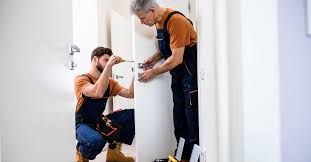
By Youmna Rehman
•
February 19, 2025
Few things are more frustrating than inserting your key into a lock, turning it as usual, and suddenly feeling it snap. A broken key in a lock can instantly turn a routine task into a stressful situation. Whether it's your home, car, or office, the inability to access your property can disrupt your day and leave you scrambling for a solution. But before you start panicking or consider replacing the lock entirely, take a deep breath. There are several effective ways to remove a broken key from a lock without causing damage. This guide will walk you through the process, helping you understand why keys break, how to remove them safely, and what steps you can take to prevent this from happening in the future. How to Fix a Stiff or Hard-to-Turn Lock Why Do Keys Break in Locks? A key breaking inside a lock is usually the result of a combination of wear and tear, force, or an issue with the lock itself. Here are some common reasons why keys snap: 1. Metal Fatigue and Weakness Keys undergo stress over time. Daily use, exposure to moisture, and bending can weaken the metal, making it prone to breaking when inserted or turned in a lock. 2. Misalignment of the Lock and Key If a lock is old, rusty, or poorly maintained, the internal components may become misaligned. This forces the key to work harder than it should, increasing the likelihood of snapping. 3. Using Excessive Force Sometimes, in frustration, people turn the key too hard when it isn’t turning smoothly. Applying extra force can cause a weak or old key to break instantly. 4. Cold Weather Conditions In freezing temperatures, metal contracts, making both keys and locks more fragile. If your key was already worn down, cold weather might push it to its breaking point. 5. Debris or Dirt in the Lock Over time, locks accumulate dust, dirt, and small debris. If these particles build up inside the lock, they can create resistance, making it harder for the key to turn properly and increasing the risk of breakage. Step-by-Step Solutions to Remove a Broken Key Safely Now that we understand why keys break, let's focus on how to remove a broken key without damaging the lock. 1. Assess the Situation First Before attempting any removal, check how much of the key is visible outside the lock. If a significant portion is sticking out, your job will be much easier. If the key is deep inside, you’ll need to use more precise techniques. 2. Try Tweezers or Needle-Nose Pliers If part of the broken key is visible, use a pair of fine-tipped tweezers or needle-nose pliers to grip and gently pull it out. However, be cautious—if your tweezers are too thick, they may push the key further into the lock, making extraction more difficult. 3. Use a Broken Key Extractor Tool Professional locksmiths use a broken key extractor, a thin tool designed to slide into the lock and hook onto the broken key's teeth. If you have one, carefully insert it along the groove of the key and pull it out slowly. 4. Apply Lubrication If the key is stuck, applying a lubricant like WD-40 or graphite powder can help loosen it. Spray a small amount into the lock and wait a minute before attempting to remove the key again. 5. The Tapping Method If gravity can work in your favor, hold the lock opening downward and gently tap it against a hard surface. Sometimes, the vibration is enough to loosen the broken key and allow it to fall out. 6. Using a Jigsaw Blade or Thin Wire If you don’t have an extractor tool, a fine jigsaw blade or thin piece of stiff wire can work in a pinch. Insert it along the broken key, try to hook onto the ridges, and gently pull it out. 7. Seek Professional Help If none of these methods work or the key is deeply lodged inside the lock, calling a professional locksmith is the best option. A locksmith has specialized tools and experience to remove the key without damaging the lock. Risks Involved in DIY Key Removal While removing a broken key yourself can save time and money, there are some risks to be aware of: Pushing the Key Further In : If you’re not careful, attempts to extract the key can accidentally push it deeper into the lock, making removal more difficult. Damaging the Lock Mechanism: Using improper tools or excessive force can bend or break internal lock components, leading to more costly repairs. Leaving Key Fragments Inside: If only part of the key is removed and small fragments remain, they can cause future problems with inserting and turning a new key. Preventive Measures: Avoiding Broken Keys in the Future To ensure you never have to deal with a broken key again, follow these simple preventive measures: 1. Regularly Inspect Your Keys If your key looks worn down, has visible cracks, or feels weaker when used, consider getting a new one before it breaks. 2. Keep Locks Clean and Lubricated Dirt and debris buildup inside a lock can make it difficult to turn the key. Clean your locks occasionally and use graphite powder or WD-40 to keep them functioning smoothly. 3. Don’t Force a Stuck Key If your key isn’t turning easily, stop and check for obstructions or try lubricating the lock before applying pressure. 4. Get a Spare Key Made Having a spare key on hand ensures that if one key gets weak, you can switch to the backup instead of pushing your luck with an old, worn-out key. 5. Upgrade to a More Durable Key or Lock Consider upgrading to a sturdier key material or even a smart lock system, which eliminates the need for physical keys altogether. Conclusion: Patience and the Right Tools Make All the Difference A broken key in a lock is undoubtedly an inconvenience, but it doesn’t have to be a disaster. By using the right techniques and tools, you can safely remove a broken key without damaging the lock. The key to success? Patience and precision. And remember—prevention is always better than cure. Taking simple steps to maintain your keys and locks can save you from this frustrating situation in the future. If you ever find yourself in doubt or dealing with a deeply lodged key, don’t hesitate to call a professional locksmith for assistance. With the right knowledge and approach, you can tackle a broken key issue with confidence and get back to your day hassle-free!
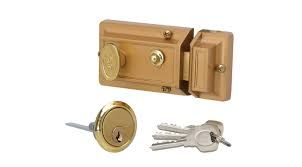
By Youmna Rehman
•
February 15, 2025
When it comes to home security, your choice of locks can make or break your defense against intruders. Traditional locks have been the go-to for centuries, providing a simple, mechanical solution to securing doors. On the other hand, smart locks have emerged as a futuristic alternative, offering high-tech features that promise convenience and enhanced security.
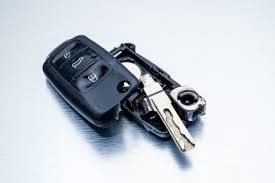
By Youmna Rehman
•
February 15, 2025
Few things are as frustrating as sitting in your car, ready to go, only to find that your key won’t turn in the ignition. Whether you’re rushing to work, picking up the kids, or just trying to run a quick errand, this unexpected issue can throw your entire day into chaos.
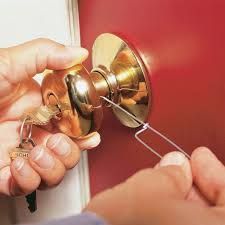
By Youmna Rehman
•
February 8, 2025
Rekeying a lock is an essential skill that can save you time and money while enhancing your security. Whether you've recently moved into a new home, lost a key, or simply want to ensure that old keys no longer work, rekeying is a practical alternative to replacing an entire lock.

By Youmna Rehman
•
February 8, 2025
The rise of smart home technology has brought convenience to our fingertips, and smart locks are a prime example of this innovation. No more fumbling for keys or worrying about getting locked out—smart locks allow you to enter your home with just a tap on your phone or a simple voice command.


